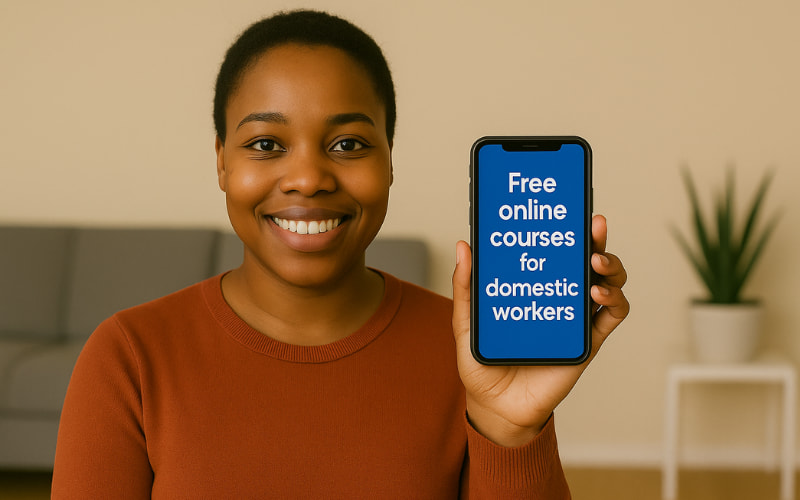Employment Tips
How to Improve Communication Skills for Stronger Relationships
Stronger communication starts with small changes. These simple tips help you improve both your personal and work relationships.
Advertisement
Speak Better. Listen Deeper. Connect Smarter — Every Day

Improving your communication skills can make a big difference in both your personal and professional life. Whether you want to speak more clearly, listen better, or understand others more deeply, there are simple ways to improve. Clear, honest, and active communication is key to making these improvements.
By building good communication habits, you can grow more confident and effective in any setting. The tips in this article will help you strengthen your communication every day.
Core Principles of Effective Communication
Great communication is about more than words. It includes listening fully, choosing your words carefully, and making sure your body language supports your message. When these are in sync, you avoid misunderstandings and build better connections.
You will be redirected to another website
You’ll receive messages for less than 1 week, with a maximum of 1 message per day. You can unsubscribe anytime by replying STOP. By submitting this form, I confirm that I am 18+ years old and agree to the Privacy Policy and Terms and Conditions. I also provide my signature, giving express consent to receive informational messages via automated emails, SMS, MMS text messages, and other forms of communication. Message frequency may vary as part of our good-faith effort to respond to your inquiry. Message and data rates may apply. Text STOP to cancel. I understand that my consent to receive communications is not a condition of purchase and that I may revoke my consent at any time.
Active Listening Strategies
To be a good listener, give the speaker your full attention. Don’t interrupt or let your mind wander. Put your phone down and stay focused on their words and tone.
Show that you’re listening by nodding or using short replies like “I understand” or “That makes sense.” Ask questions to clarify or show interest. Try to repeat back the main points to confirm understanding.
This kind of listening shows respect and keeps the conversation clear and productive.
Clarity and Conciseness
Think before you speak. Know your main point and say it clearly. Use simple language and short sentences. Avoid long explanations that may confuse your listener.
Focus on one idea at a time. Share your main point early in the conversation, especially if you’re making a request or giving feedback.
Being clear and brief shows respect for people’s time and helps your message land effectively.
Verbal and Nonverbal Alignment
Your tone, posture, and facial expressions should match your words. If you say something positive but frown or avoid eye contact, people may doubt your message.
Use a calm tone and relaxed posture. Make eye contact and smile when appropriate. These actions help your message feel more sincere.
When your words and body language match, people trust and understand you more easily.
Developing Strong Interpersonal Skills
Better communication also means better people skills. Learning to understand others, handle feedback, and manage your emotions will improve how you relate to others.
Building Empathy
Empathy is about understanding how others feel. You can show empathy by listening patiently and noticing emotions behind words.
Try to see things from the other person’s view. Even if you don’t agree, showing that you care about how they feel makes a big difference.
Use kind words and gestures. A little understanding goes a long way in making conversations smoother and relationships stronger.
Constructive Feedback Techniques
Feedback helps people grow, but how you give it matters. Be kind and clear. Focus on actions, not personality.
Use the “sandwich method”: start with something positive, give your feedback, and finish with encouragement.
When you receive feedback, stay calm and open-minded. Don’t take it personally — use it as a chance to learn and improve.
Emotional Intelligence in Communication
Emotional intelligence is knowing how to handle your feelings and understand others’. This helps you stay calm, especially in stressful situations.
If you feel upset during a conversation, pause and breathe before responding. Think about your tone and words.
When you manage emotions well, your communication becomes more thoughtful and respectful.
Practical Tips to Improve Communication Skills

Improving communication is a skill you can build every day. These tips will help you express yourself better and understand others more clearly.
Public Speaking Exercises
Practice talking about familiar topics in front of a mirror or with friends. Use a timer to keep your talk short and focused. Record yourself to hear your tone and improve how you sound.
Practice your posture, eye contact, and hand gestures while speaking. This builds confidence and helps you sound more natural in conversations.
Join a group or take a class if you want more support. Feedback from others can help you grow faster.
Effective Use of Body Language
Your body speaks too. Keep an open posture, look people in the eye, and avoid defensive gestures like crossed arms.
Smile naturally, move with purpose, and use hand movements to support your words. These small signals help people feel more connected to you.
Watch how others respond — their body language can tell you if your message is landing well or if you need to adjust.
Overcoming Communication Barriers
Sometimes nerves, noise, or different languages make it harder to communicate. You can overcome these barriers with preparation and patience.
Before speaking, find a quiet space. Speak slowly and clearly. Use simple words and check in with the listener to make sure they understood.
If you feel nervous, take a breath and pause before speaking. Ask for feedback or questions to keep the conversation two-sided.
Sustaining Long-Term Communication Growth
Communication is a skill you build over time. Setting clear goals and learning from others helps you stay on track.
Setting Personal Development Goals
Choose a skill to focus on — like asking better questions or reducing filler words. Set small, weekly goals and track your progress.
For example, aim to ask one thoughtful question in every conversation this week. Write down what works and what you can improve.
Celebrate progress, even small wins. Improvement takes time, but every step matters.
Seeking Mentorship and Training
Find someone you respect to guide you. A mentor can give useful feedback and share real-life examples.
Look for classes or online workshops to keep learning. Practicing in safe spaces builds your confidence for real conversations.
Ask your mentor or trainer to help track your progress and offer advice. The more support you have, the easier it is to grow.
Communication is Your Connection
Good communication is more than just talking — it’s how we connect, understand, and build trust with others. Whether you’re speaking up at work or sharing your thoughts at home, the way you communicate shapes your relationships.
With practice, patience, and a few simple strategies, you can improve how you express yourself and how well you understand others. The more you learn to listen, speak, and connect with purpose, the stronger your personal and professional relationships will become.
Trending Topics

Amazon is Hiring: Warehouse Roles Paying up to $100k/year
Discover Amazon careers in the U.S. See vacancies, benefits, and growth opportunities in one of the country’s largest employers.
Keep Reading
FedEx Jobs: Hiring now, earnings up to $28/h!
Learn how FedEx workdays blend scheduled routines with unexpected challenges, fostering skill development in a practical, grounded way.
Keep Reading
Carpenter Jobs Hiring Now: Earn Over $75,000 Without a Degree
Discover why carpentry remains one of the most in-demand trades in the U.S., with salaries reaching over $80,000
Keep ReadingYou may also like

Jobs at Amazon UK Near You – High Hourly Pay & Quick Hiring Process
Find current Amazon UK job openings paying up to £16.82/hour. No degree or experience needed. Work in warehouses or from home. Apply today.
Keep Reading
Free Online Courses for Domestic Workers and Caregivers to Start Today
Learn housekeeping, first aid, and caregiving skills for free online. Improve your chances of better jobs and pay!
Keep Reading
Eskom careers in 2025: what to know before you apply
Explore Eskom careers in plain terms: plant ops, grid planning, and IT/OT. Learn pay ranges, benefits, interview prep, and more.
Keep Reading